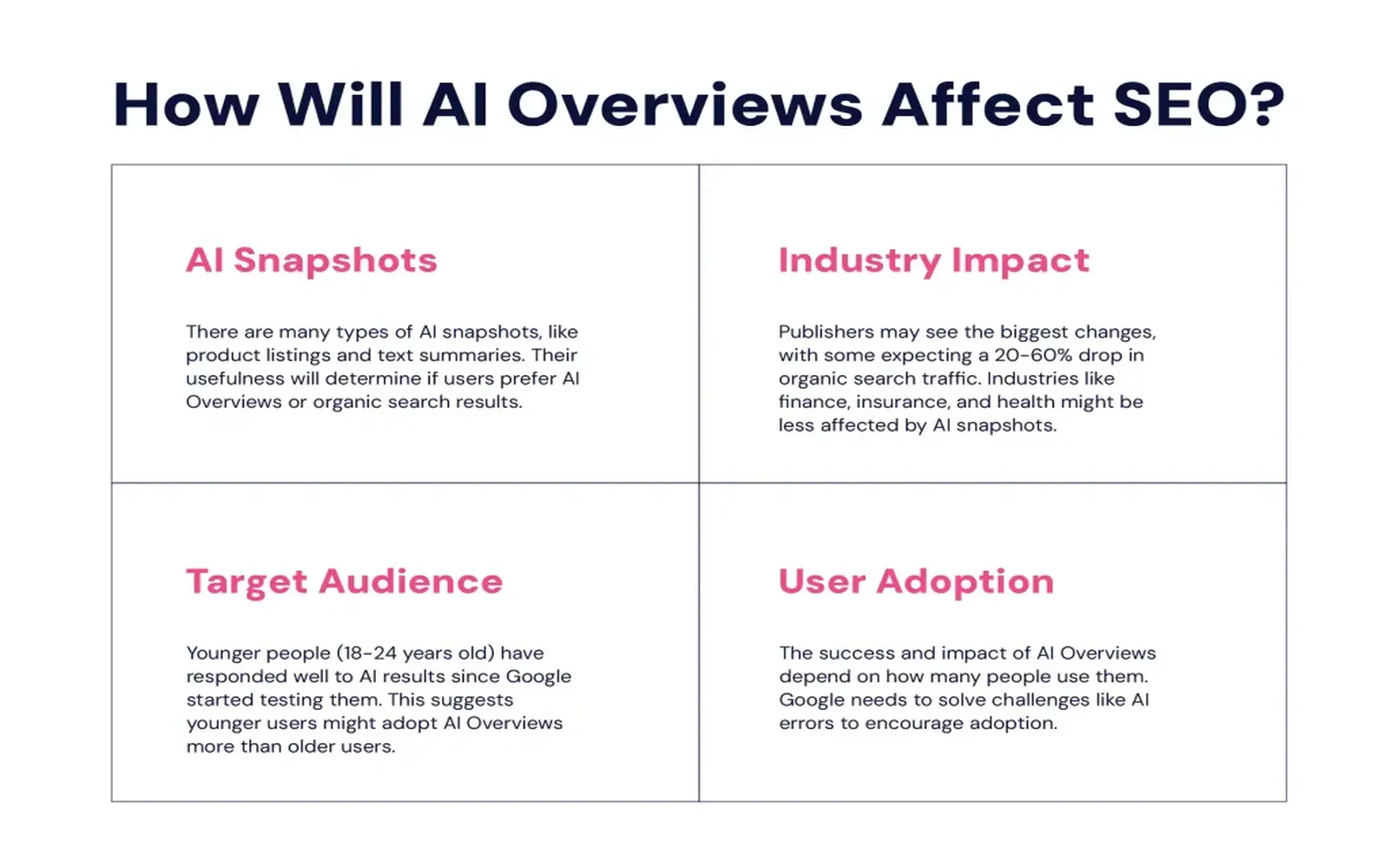Understanding Google AI Overview
In recent years, Google has made significant strides in the development of artificial intelligence (AI), fundamentally altering how businesses operate across various sectors. The Google AI Overview encompasses a range of tools and technologies designed to improve efficiency, enhance decision-making, and streamline processes. As organizations increasingly adopt these innovations, it’s crucial to understand how they impact different industries.
Impact on 20 Industries
Below is a comprehensive chart illustrating the impact of Google AI on 20 distinct industries. Each sector benefits from AI advancements in unique ways, leading to improved operations and enhanced customer experiences.
| Industry | Impact of Google AI |
|---|---|
| Healthcare | AI aids in diagnostics, personalized medicine, and patient management. |
| Finance | Enhanced fraud detection, risk assessment, and investment analysis. |
| Retail | Improved customer insights, inventory management, and personalized marketing. |
| Transportation | Autonomous vehicles, route optimization, and predictive maintenance. |
| Manufacturing | Smart factories, quality control, and supply chain optimization. |
| Education | Personalized learning experiences and administrative automation. |
| Telecommunications | Network optimization and customer service chatbots. |
| Real Estate | Predictive analytics for property valuation and market trends. |
| Energy | Smart grid technology, energy consumption analysis, and resource management. |
| Media & Entertainment | Content recommendation systems and audience engagement analytics. |
| Legal | Document analysis and case law research automation. |
| Travel & Hospitality | Personalized travel recommendations and customer service enhancements. |
| Agriculture | Precision farming and yield prediction. |
| Insurance | Risk assessment and claims processing automation. |
| Construction | Project management optimization and safety monitoring. |
| Nonprofit | Data analysis for impact measurement and fundraising strategies. |
| Pharmaceutical | Drug discovery and clinical trial optimization. |
| Food & Beverage | Supply chain efficiency and consumer trend analysis. |
| Cybersecurity | Threat detection and response automation. |
| Human Resources | Recruitment automation and employee engagement analytics. |
| Marketing | Targeted advertising and customer behavior forecasting. |
The Role of referrerAdCreative in Google AI Implementation
Among the various tools and technologies enhancing industries, referrerAdCreative plays a crucial role in the marketing sector. This innovative feature allows marketers to effectively utilize AI-driven insights to create compelling advertisements, optimize ad placements, and increase conversion rates.
By analyzing audience behavior and preferences, referrerAdCreative enables businesses to craft targeted messaging that resonates with potential customers. This can lead to higher engagement levels and improved ROI on advertising spend.
Benefits of Google AI Across Industries
The benefits of integrating Google AI into various industries are multifaceted. Here are some key advantages:
- Increased Efficiency: Automation of routine tasks allows employees to focus on strategic initiatives, driving productivity.
- Enhanced Data Analysis: AI can process vast amounts of data quickly, uncovering insights that would be impossible to detect manually.
- Personalization: Businesses can deliver tailored experiences to customers, improving satisfaction and loyalty.
- Cost Reduction: By streamlining operations and optimizing resource allocation, organizations can significantly cut costs.
- Innovative Solutions: AI fosters creativity, enabling companies to develop new products and services that meet evolving consumer demands.
Challenges in Adopting Google AI
While the advantages of Google AI are substantial, businesses may encounter several challenges during implementation:
- Data Privacy Concerns: Ensuring that customer data is handled responsibly and in compliance with regulations is crucial.
- Integration Complexity: Merging existing systems with new AI technologies can be a daunting task for many organizations.
- Skill Gaps: The demand for skilled professionals who can leverage AI tools is higher than the current supply.
- Cost of Implementation: Initial investment in AI technologies can be significant, potentially deterring smaller businesses.
Conclusion
The impact of Google AI Overview is profound and far-reaching, affecting a multitude of industries in various ways. From healthcare to marketing, the integration of AI tools like referrerAdCreative is transforming operations, enhancing customer experiences, and driving innovation. As organizations navigate the challenges of adopting these technologies, the potential for increased efficiency and growth remains a compelling reason to embrace the AI revolution.





